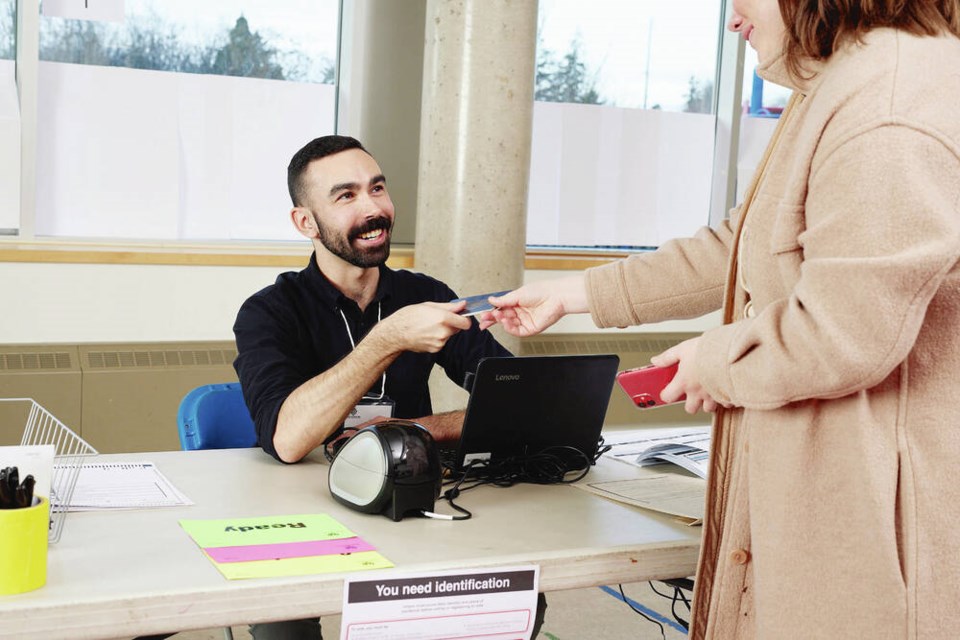Faster electronic tabulation means results for the provincial election could be available within an hour of polls closing Saturday.
Elections B.C. spokesperson Andrew Watson said the goal is to have 50 per cent of the results within half an hour of polls closing at 8 p.m., and the majority “within the hour.”
With well over a thousand open around the province on Saturday, casting ballots is also expected to be faster.
Clerks will be using laptops for electronic registration, so when people show up to vote, they can enter the shortest queue to sign in, produce their proof of and register if they haven’t done so already. In the past, people had to wait for a designated line.
“That’s a pretty significant service improvement,” said Watson. “We think that will make the voting process much easier for voters.”
The goal of making voting easier and faster is to increase voter participation. Voter turnout was just 54 per cent in 2020, down from about 61 per cent in 2017, and significantly lower than the 71 per cent turnout rate in 1996.
Voters will mark an X or fill in the circle beside a on familiar paper ballots, then place the ballot in a privacy sleeve and feed it into an electronic tabulator, which strips the ballot of the sleeve and reads it.
Once polls close, the machines will produce paper results that will be phoned in to the district electoral office, where officials will enter the results for publication on Elections B.C.’s website.
Based on experiences in the 2022 and 2023 byelections, that can happen “quite quickly,” said Watson.
The other benefit of electronic tabulation is that it captures 98 per cent of the votes cast, including mail-in and absentee ballots.
Advance ballots cast over six days this month — a record-breaking over a million, representing 28 per cent of all registered voters in B.C. — will also be tabulated.
With several ridings on Vancouver Island and the rest of the province too close to call by pollsters, it’s possible one or more will come down to a difference of 100 votes or fewer.
In that case, the ballots from those ridings will be recounted by hand as part of the larger final count scheduled for Oct. 26-28, “because some ballots do need additional integrity checks to make sure that the voter was eligible to vote and that they only voted once,” said Watson.
If as part of that final manual recount, the difference between two or more candidates in a riding comes within 1/500th of the total votes cast, there will be a judicial recount. After that, the official results will be sent to the chief electoral officer, who will forward them to the B.C. legislature.
In this provincial election, there are 93 ridings, including 15 on Vancouver Island.
Both the NDP and BC Conservatives are running a full slate of candidates, while the Greens are running 69, and a record 40 Independents are in the race, including six incumbents.
> For more information on the B.C. election, including Vancouver Island riding profiles and candidate biographies, go to
>>> To comment on this article, write a letter to the editor: [email protected]




